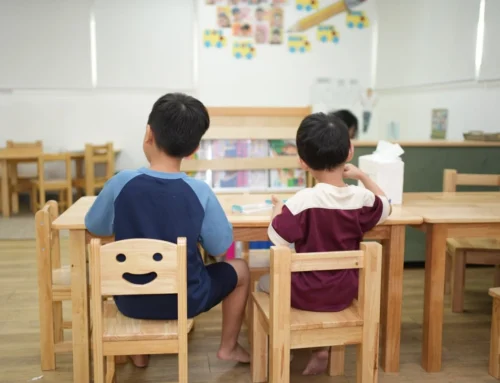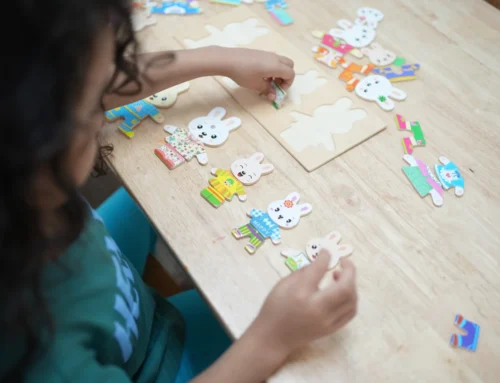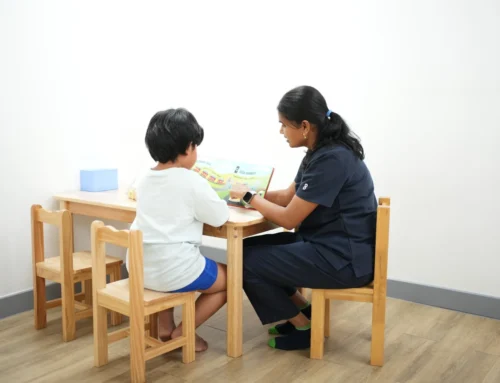Speech therapy can be a life-changing journey for children struggling with communication challenges. However, for parents in Phnom Penh or across Cambodia, understanding how to track and measure progress in speech therapy can be just as important as the sessions themselves. Tracking progress helps you stay informed, celebrate small wins, and ensure that your child is receiving the right support at every stage.
In this article, we’ll explore practical strategies for monitoring your child’s progress in speech therapy, from observing behavior changes to communicating effectively with therapists.
Understanding Progress in Speech Therapy
Speech therapy isn’t an overnight fix—it’s a gradual process that focuses on helping children improve speech sounds, language comprehension, social communication, and confidence. Every child learns differently, so progress can vary widely.
At OrbRom Center in Phnom Penh, therapists use personalized treatment plans that target specific goals. Progress is tracked through measurable outcomes, such as improved pronunciation, increased vocabulary, and better sentence construction. Parents play a vital role in this process by reinforcing therapy goals at home and observing daily changes.
1. Ask for a Clear Baseline Assessment
Before therapy begins, your child’s speech-language pathologist (SLP) should conduct a comprehensive assessment to identify current strengths and challenges. This baseline serves as the foundation for all progress tracking.
An initial assessment might include standardized speech and language tests, informal observations, and parent interviews. Once completed, the therapist will develop individualized goals—such as producing specific sounds or improving comprehension.
By comparing ongoing results with this initial data, both parents and therapists can objectively measure improvement over time.
2. Use Regular Progress Reports and Goal Reviews
A professional speech therapy program includes structured goal reviews—usually every few weeks or months. During these reviews, the therapist will share updates about which goals have been met and what areas need continued focus.
At OrbRom Center Phnom Penh, for example, therapists provide parents with regular progress summaries using data, session notes, and observable changes in communication skills.
You can ask questions like:
-
How has my child’s speech improved since the last review?
-
What new sounds, words, or communication behaviors are emerging?
-
Are there specific challenges slowing progress?
These discussions help you stay aligned with your child’s therapy plan and understand the long-term trajectory.
3. Observe Everyday Communication
Progress doesn’t only happen during therapy sessions—it shows up in everyday moments. Notice how your child communicates at home, school, or in the playground.
Some signs of progress include:
-
Using new words or phrases more independently
-
Attempting to correct their own pronunciation
-
Showing more confidence in speaking with others
-
Better understanding and responding to questions
Small improvements are powerful indicators that therapy is working. Keep a simple “speech journal” where you record milestones, such as “today my child said ‘thank you’ clearly for the first time.” Over time, this log becomes an inspiring reminder of how far your child has come.
4. Communicate Consistently with the Therapist
Strong communication between parents and therapists ensures that therapy remains consistent across settings. During drop-offs or pick-ups, ask for a quick summary of the day’s session. You can also request home-based activities that reinforce therapy goals.
Questions to ask include:
-
What can we practice at home this week?
-
Are there any new techniques or games that can help?
-
How can we support pronunciation or language goals at home?
Parents who actively engage in this feedback loop often see faster and more sustainable progress.
5. Celebrate Small Victories
Progress in speech therapy should be celebrated—no matter how small. Whether your child finally says a tricky sound or initiates a conversation at school, these achievements are milestones worth acknowledging.
In Phnom Penh’s diverse bilingual environment, progress can also mean mastering pronunciation across languages, which takes extra effort and patience. Recognizing growth encourages motivation and builds your child’s confidence.
You can use rewards, verbal praise, or even a visual progress chart to keep your child excited about therapy.
6. Consider Reassessment for Long-Term Planning
If your child has been in therapy for several months, periodic reassessments help determine whether goals need updating. Sometimes, as your child progresses, the focus may shift from articulation to more complex language or social skills.
Scheduling a follow-up assessment every 6–12 months through a professional center like OrbRom Center ensures that the therapy remains relevant and effective.
7. Stay Patient and Consistent
Speech therapy progress often follows a “two steps forward, one step back” pattern. Plateaus are normal and do not mean therapy isn’t working. The key is consistency—attending all sessions, practicing at home, and trusting the therapist’s plan.
Parents who stay engaged, patient, and supportive often see the most positive long-term outcomes.
Conclusion
Tracking your child’s progress in speech therapy helps you stay connected, informed, and empowered in their communication journey. From initial assessments and progress reports to celebrating everyday wins, every step matters.
If you’re seeking evidence-based, child-centered support in Phnom Penh, at OrbRom Center we offer comprehensive speech therapy, occupational therapy, and special needs intervention programs to help children thrive in communication and learning.
We are the only Preschool specialized on children with special needs in PhnomPenh.
- Internationally qualified teachers
- Cambodia’s largest sensory room
- Outdoor swimming pool
- Covered outdoor playground
📞 Phone: 077.455.993
Telegram Link: https://t.me/OrbRom





